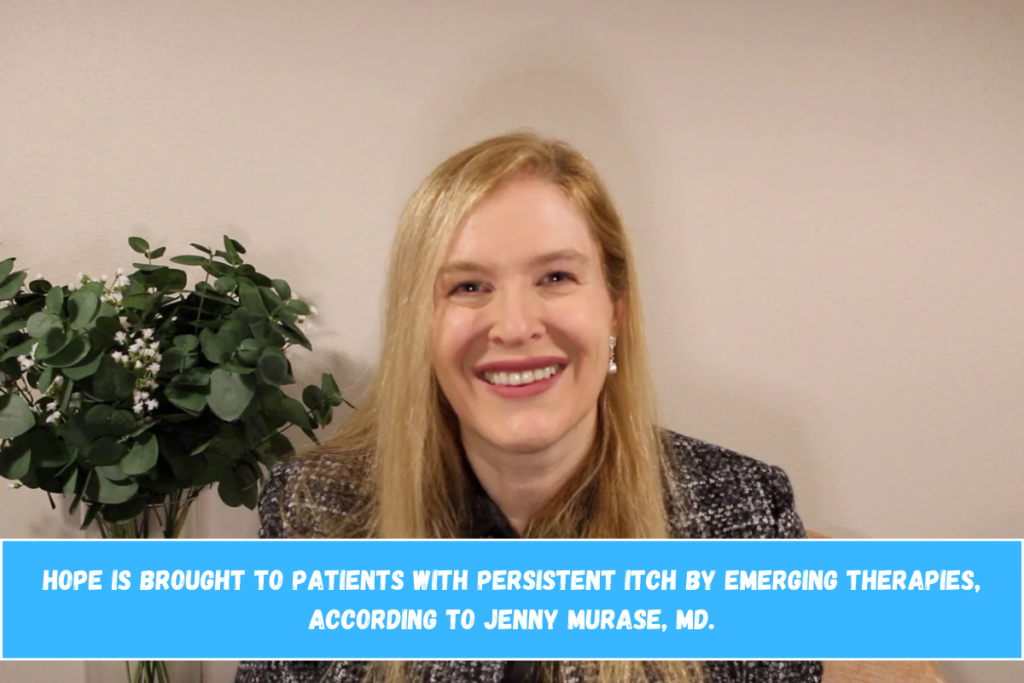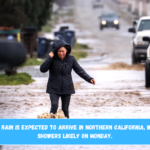Dr. Jenny Murase, who is the director of medical consultative dermatology at the Palo Alto Foundation Medical Group and an assistant clinical professor at UCSF, shared new ideas about how women’s health and dermatology can work together at the 2024 Elevate-Derm West Conference.
In almost 20 years, Murase has done over 6,800 consultations for dermatologists and allergists in the Bay Area. She shared her knowledge on how to handle tough dermatology cases, especially those with itching that won’t go away and rashes that are hard to treat.
She also talked about how exciting it is that new medicines might be able to help with neuropathic conditions that don’t respond well to old ones.
Murase said she hopes that one day dermatologists will be able to treat these conditions more effectively, giving patients who haven’t had many choices up until now real relief.
“I think that this is an incredibly exciting time to be a dermatologist, because we have all these new therapeutics coming on the market for conditions that patients really haven’t had anything to treat in the past,” said Murase.
I think that our field is going to be changing rapidly within the next few weeks to months in terms of what we’re able to do to care for these patients that are truly suffering.”
Mary Jenny Murase, MD: My name is Dr. Jenny Murase, and I work at UCSF as an associate clinical professor and as the head of medical consultative dermatology at the Palo Alto Foundation Medical Group. I just gave three talks about women’s health and skincare at NP Elevate in Arizona over the past few days.
I am in charge of medical advisory dermatology at the Palo Alto Foundation Medical Group. Over the past 18 years, I’ve met with six thousand dermatologists and allergists in the Bay Area. I see a lot of people with bad rashes and itchy skin.
In the last few weeks, I’ve seen the most amazing results in terms of finally being able to treat itching well in patients who had a disease that wouldn’t go away and that we weren’t able to treat well before.
Like, I had one man who had tried 30 different skin and oral medicines that didn’t work for this painful condition that felt like electric shocks. He had to quit his job because it was making him so sick and hurt.
We tried every medicine we could think of all day, from JAK inhibitors to Dupixent, which blocks IL-4 and 13, to nerve drugs like Lyrica and Neurontin, and anything else we could think of.
After years of having this itch, we gave him a shot of nemolizumab, and within 10 days, it went away. It stayed gone for 12 days and then came back just a little. In the last six weeks, I’ve seen that happen to about 18 people.
I’ve even helped a patient whose mouth was on fire. It did more than just itch. It burned too. When this woman wakes up in the morning, she feels the burning right away. It stays with her all day, and it’s the last thing she thinks about before she goes to sleep.
She says it feels like a flame torch is in her mouth sometimes. “Is this what it feels like for my mouth not to burn?” she asked me in an email a few days after therapy.
As a dermatologist, I think this is a very exciting time because new medicines like nemolizumab are coming out to treat skin problems that people haven’t had much help with in the past.
I believe that in the next few weeks or months, our field will quickly change in terms of what we can do to help these people who are really suffering.
The skin conditions I’m most excited to use nemolizumab for, especially as a neuropathic agent, are neurogenic rosacea and other conditions where patients have terrible burning and flushing on their faces and we can’t really do much to control it.
I need to cover the screens in the room because even the light they can see hurts them a lot. Another condition that can cause severe pain in the limbs is erythromelalgia, which is linked to redness.
No idea if it will work, but it seems like it would help those who have itchy skin that may be a little dermatographic (when they scratch, the skin gets red and swollen). We know that mast cells release some kind of substance. We don’t know what’s causing the itch, but it feels a bit like urticaria.
If you’re taking any medicine for itching, especially nemolizumab, you should make sure that you don’t have leukemia or lymphoma underneath.
You don’t want to hide the main sign with medicine for itching. Make sure you get a chest X-ray and a complete blood count (CBC). And a leukemia/lymphoma flow cytometry screen is all you need to make sure that’s not the case. It’s just a blood test.
But if there’s itching and then prurigo nodularis, or if there’s itching and itchy. In years to come, it will be very interesting to see how these patients respond. So far, the reaction has been really great, and I’m so glad I can help people who had no resources before.


